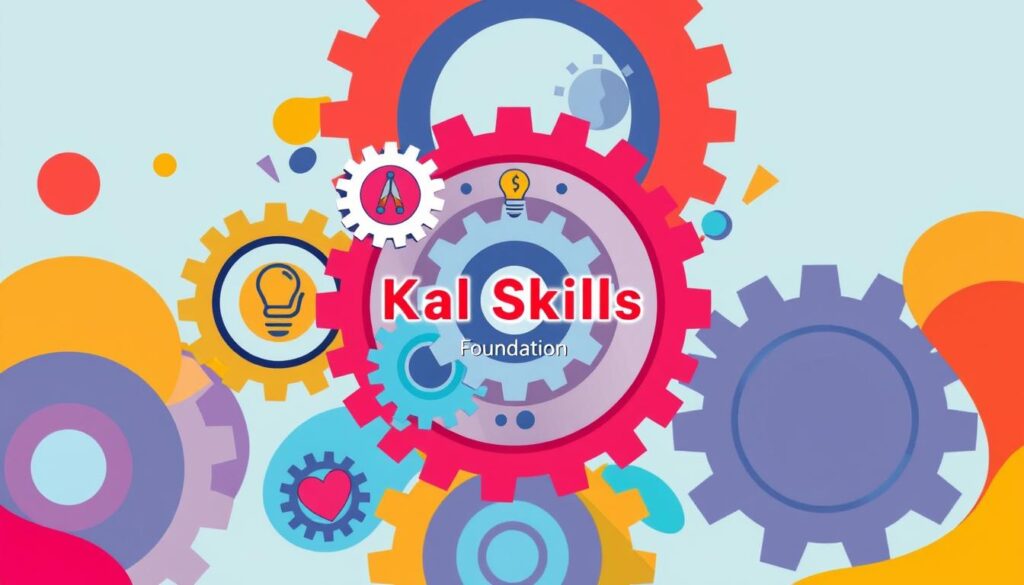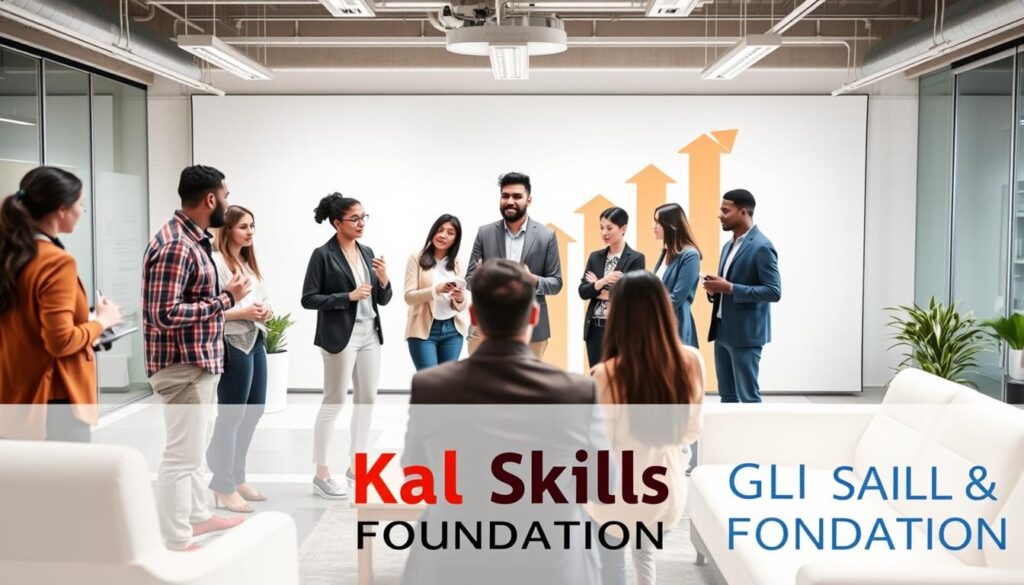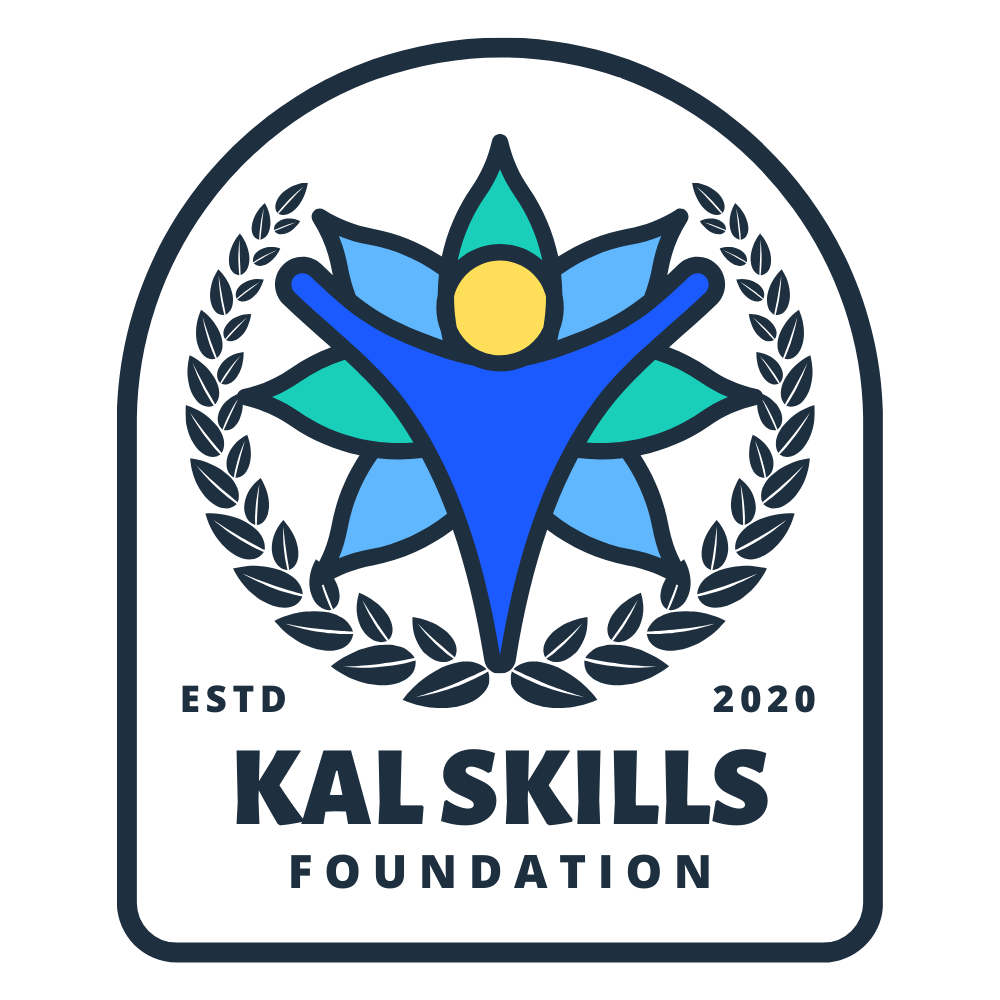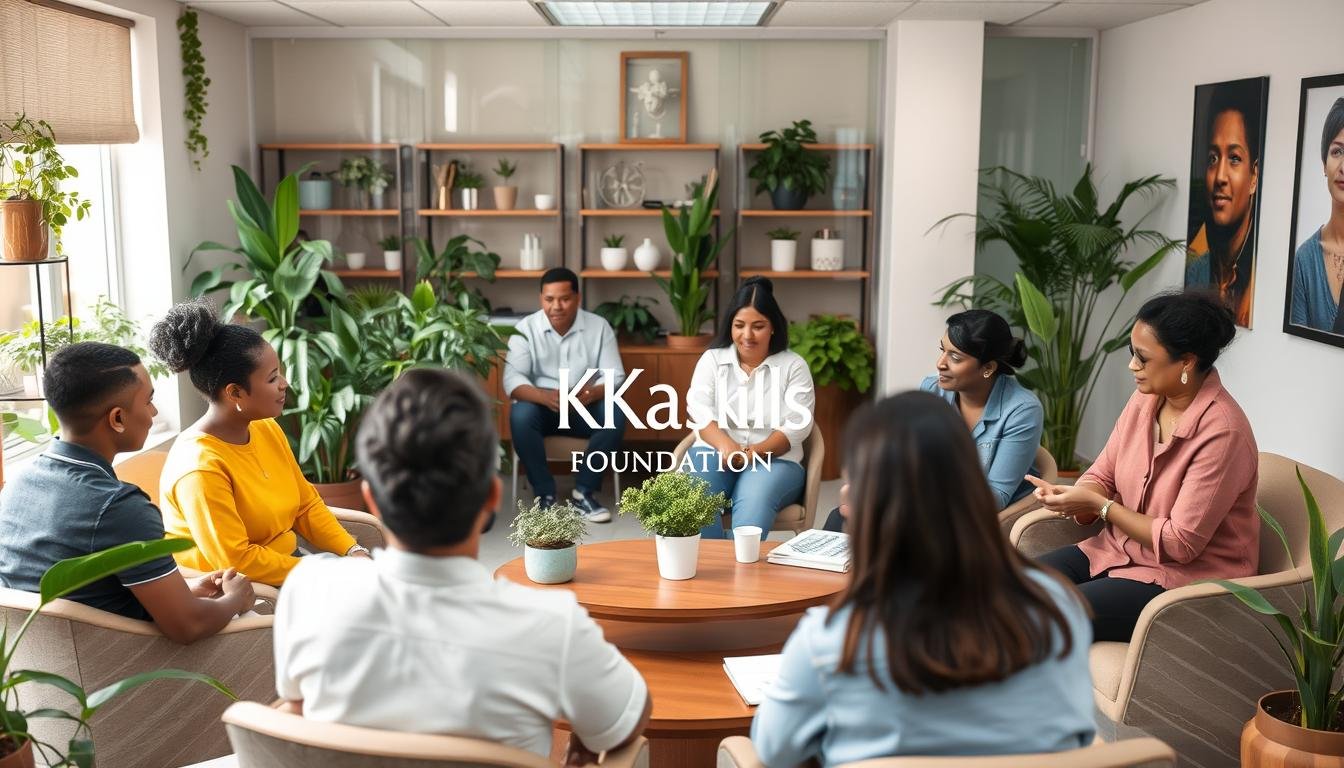Did you know the personal development market is worth $9.6 billion1? This huge number shows how much people and companies value learning and growing. Your journey in personal development can change your life, leading to more success and happiness.
Setting personal development goals at work can improve your skills and life quality2. These goals help you grow, become more resilient, and love learning2. Start by thinking about what you need, then make goals that are clear, measurable, and achievable (SMART)2.
Getting feedback from mentors and supervisors is key to making your goals better2. Also, keep track of your progress to celebrate your wins and make changes when needed2.
Key Takeaways
- Personal development goals at work enhance your abilities, skills, and quality of life for career and personal advancement.
- Setting personal development goals fosters a growth mindset, encouraging resilience and a love for learning.
- Reflecting on your needs is the starting point for effectively setting personal development goals.
- Seeking feedback from mentors and supervisors is crucial for refining your personal development goals.
- Monitoring progress towards your goals is important for celebrating victories and making adjustments.
What is Personal Development?
Personal development is a journey of self-improvement. It helps you grow your skills, knowledge, and well-being3. It’s about learning life skills, growing in your career, and moving forward4.
This journey helps you live in line with your values. It pushes you to be your best self. You’ll gain confidence, self-esteem, and awareness, key for success.
Setting personal development goals is important. It means believing you can get better with hard work and feedback3. This mindset helps you bounce back from challenges and see feedback as a chance to grow3.
Having a growth mindset makes you positive and focused. It helps you love learning. This is the foundation for achieving your dreams.
The Essence of Personal Development
At its heart, personal development is about discovering yourself and growing. It’s about learning new skills and improving your emotional and psychological health4. It’s a journey of self-discovery and growth.
This journey includes many activities. It’s about knowing yourself, building self-esteem, and reaching your goals4. It’s a way to unlock your potential and live a more meaningful life.
The path to personal development is shaped by many factors. It can be driven by career goals or changes in personal life3. Understanding your family and emotional patterns is key to finding areas to grow3.
By being aware of yourself and changing how you act in work, you can make progress3.
Personal development is a lifelong journey. It takes commitment, effort, and patience3. The steps include knowing yourself, setting goals, learning new skills, and persevering3.
With a growth mindset and a commitment to learning, you can reach your full potential. This leads to personal and professional fulfillment34.
The Importance of Personal Development
Personal development is key to success and happiness in many areas of life. It helps improve work, health, education, and relationships5. It’s about looking inside and finding ways to grow, build confidence, and achieve your dreams5.
It also helps you develop a growth mindset. This mindset is important for overcoming challenges and reaching your goals5.
Personal development is a lifelong journey. It’s not just for a certain age or stage6. It includes improving personal and professional life6. Setting goals based on self-reflection helps you track your progress and grow6.
Investing in personal development boosts confidence and skills. It also improves relationships and overall well-being6. It can even help in your career, making you more employable and opening new opportunities6.
But, there are challenges like lack of time and fear of failure. Overcoming these is key to successful personal development6.
Personal development is vital for career and personal growth5. It helps you understand your talents and improve your skills. This keeps you competitive in both personal and professional life5.
It also gives you direction by clarifying your goals and values. Plus, it boosts creativity by encouraging new ideas and perspectives5.
| Key Benefits of Personal Development | Impact |
|---|---|
| Increased self-awareness and self-esteem | Improved mental fitness, leading to increased productivity, less mental illness, and enhanced creativity5 |
| Greater resilience | Ability to better manage stress and preserve emotional health5 |
| Acquiring more knowledge and skills | Enhanced leadership skills, boosting confidence and professional relationships5 |
| Maintaining a sense of purpose and motivation | Crucial for personal and professional growth and fulfillment5 |
In conclusion, personal development is a journey that touches all aspects of life5. By embracing it, you can unlock your potential, grow professionally, and live a more fulfilling life5.
Setting Personal Development Goals
Creating personal development goals is a strategic process. It can help you grow, improve your skills, and advance in your career. Start by taking a honest look at where you can improve. Use the SMART framework to make sure your goals are Specific, Measurable, Achievable, Relevant, and Time-bound.7
Divide each goal into smaller, doable steps. Get feedback from mentors, peers, and supervisors to make your plan better. This way, your goals are both challenging and reachable. Keep track of your progress to celebrate small wins and adjust your plan as needed.7
The Power of SMART Goals
About eight in ten people with clear work goals feel their ideas are taken seriously by their companies.7 Those with set goals feel more empowered than those without.7 Dr. Gail Matthews found that public, accountable goals lead to success more often than not.7
Up to 25% of people have experienced burnout due to stress, showing the need for stress management skills.7 Decision making skills can be tested with the Big 5 (OCEAN) personality exam.7 Building professional relationships can improve communication and open up new business opportunities.7
An Oracle study found that 75% of people feel “stuck” in their lives.8 Most of the time, setting challenging goals leads to better performance than vague, easy ones.8 Gitnux reports that 70% of people will face imposter syndrome at some point.8 30% of working professionals feel like imposters.8 83% of U.S. workers deal with work-related stress.8 Dell Technologies predicts that 85% of future jobs haven’t been invented yet.8
“Crafting SMART goals and breaking them down into actionable steps is key to unlocking your full potential for personal and professional growth.”
Enhancing Essential Life Skills
Learning essential life skills is key to growing personally and advancing in your career. Skills like time management, communication, emotional intelligence, problem-solving, and adaptability are crucial. Mastering these can greatly impact your success in both work and personal life9.
Time Management and Productivity
Good time management leads to more productivity and getting things done faster. In fact9, 70% of people say it helps them work smarter and do more. By focusing on what’s important, setting achievable goals, and avoiding distractions, you can optimize your day.
Communication and Emotional Intelligence
Being good at talking and listening is vital for relationships, solving issues, and sharing ideas9. 85% of those surveyed said clear communication is key for these areas. Also, knowing how to handle your feelings and others’ can lead to9 75% more success at work and in life.
Problem-Solving and Adaptability
Being able to solve problems and think critically is highly valued9. 90% of professionals see critical thinking as essential for making smart choices. Being flexible and strong when faced with obstacles can help you9 bounce back faster, with 70% of resilient people recovering quicker.
By focusing on these life skills, you can open up new chances, improve your job performance, and find more happiness. Always keep learning and growing to reach your highest potential.

Fostering Professional Growth
To reach your full potential and advance in your career, you must commit to growing professionally. This means learning new skills, expanding your knowledge, and improving your abilities. It helps you stay ahead in the fast-changing job market10.
Setting SMART (Specific, Measurable, Achievable, Relevant, and Time-bound) goals is crucial. These goals help you plan your path for skill development, leadership, and career growth10.
- Find areas to improve or new skills to learn, matching them with your career goals.
- Make your goals specific and set deadlines to keep yourself on track and motivated.
- Get feedback from mentors, colleagues, or experts to improve your goals and see how you’re doing.
Having a growth mindset is key to professional growth. By always learning and being open to change, you can keep moving forward in your field10.
| Professional Growth Strategies | Benefits |
|---|---|
| Enhancing emotional intelligence | Improved job performance and better relationships10 |
| Developing time management techniques | Work more efficiently and feel less stressed10 |
| Building a professional network | Get access to resources, mentorship, and new chances for growth10 |
| Pursuing continuous learning and skill development | Grow your knowledge, stay adaptable, and move up in your career10 |
By using these strategies, you can open new opportunities, increase your value, and move your career forward with confidence11.
“Continuous learning is the minimum requirement for success in any field.” – Brian Tracy
personal development
Continuous personal development is key to growing professionally and advancing in your career12. By adopting a growth mindset and committing to lifelong learning, you open doors to new opportunities. This can boost your job performance and move your career forward13.
Personal development covers many areas, like improving self-awareness and skills12. It aims to enhance self-esteem, health, relationships, and spiritual growth12. Through activities like reading, attending workshops, and hiring coaches, you gain confidence, better health, and stronger relationships12.
It’s crucial to know the difference between personal growth and development13. Development is about achieving success and gaining new skills. Growth is about finding happiness from within13. Aligning your goals in these areas can help you advance in your career13.
Personal development is a lifelong journey, not a one-time thing12. Every step you take helps you grow. This mindset makes you more resilient and mentally clear, setting you up for success12.

Personal growth and development are essential for change and happiness13. By understanding yourself and focusing on inner growth, you improve professionally and personally. This leads to stronger relationships and a deeper sense of fulfillment13.
Building a Professional Network
Expanding your professional network can open doors to new opportunities. It provides valuable insights that help in your personal and professional growth. By connecting with like-minded individuals and experts, you gain access to industry insights and stay informed of potential career opportunities14.
Attending industry events and joining professional groups are great ways to expand your network. These platforms let you engage with others who share your interests and expertise. This fosters meaningful connections14. Also, optimizing your LinkedIn profile with relevant content and accomplishments can attract potential connections and showcase your expertise14.
Engaging in online communities, such as forums and social media groups, can also facilitate valuable networking opportunities. By developing a strong online presence and actively participating in these communities, you can establish yourself as an industry expert. This connects you with a wider audience14.
Effective networking is not just about collecting contacts; it’s about building genuine relationships. Focus on being a connector and helping others. This can deepen relationships and create goodwill within your network14. Positive body language, active listening, and asking insightful questions are key components for successful networking interactions14.
Remember, a robust professional network can open doors to new career opportunities. It provides ongoing support for your personal and professional growth15. Continuous effort is necessary to maintain connections and enhance your visibility and credibility within your industry15.
| Networking Benefits | Impact |
|---|---|
| Access to industry insights | Gain valuable knowledge and stay informed about trends and best practices in your field14. |
| Mentorship opportunities | Connect with experienced professionals who can provide guidance and support for your career development14. |
| Career advancement | Networking can lead to new job opportunities, promotions, and referrals1415. |
| Increased visibility | Joining professional organizations and actively participating in networking events can enhance your profile and credibility14. |
| Continuous learning | Networking provides opportunities for ongoing learning and growth, as you engage with diverse perspectives and experiences15. |
Building a professional network is a crucial aspect of personal and career development. By leveraging the power of networking, you can open up new doors, gain valuable insights, and propel your professional growth. Embrace the opportunities to connect, collaborate, and continuously learn from others in your industry1415.
Advancing Your Career
Personal development gives you the tools and mindset for career advancement. It helps you grab new opportunities and find more professional fulfillment. By improving your skills, growing your network, and adopting a growth mindset, you’re ready for success and new challenges16.
Through personal development, you gain skills like communication, leadership, and adaptability. These skills help you excel in your job and take on more responsibilities16. This leads to career advancement and more professional fulfillment as you keep growing16.
Personal development also prepares you for new opportunities like promotions or new fields16. By staying proactive and adaptable, you can confidently navigate the job market. This sets you up for long-term career advancement and success16.
The journey of personal development empowers you to control your career advancement and find new opportunities. It helps you achieve the professional fulfillment you want16. By investing in your growth, you’re ready to thrive in your career16.

Unlocking the Potential for Career Growth
Personal development is key for career advancement16. It’s about improving your skills and mindset for growth. This way, you’re ready to grab new opportunities and find more professional fulfillment16.
- Enhance Your Marketable Skills: Find areas to improve that match your career goals and industry trends. Look for training or workshops to boost your skills17.
- Cultivate Leadership Capabilities: Work on skills like decision-making, problem-solving, and communication. These can lead to more responsibilities17.
- Embrace Adaptability: Show you can handle change by being open to new challenges and learning18.
- Broaden Your Perspectives: Try new experiences, projects, or roles to understand your field better17.
- Build a Robust Network: Grow your professional connections through events, associations, or mentorship. A strong network offers support and career opportunities17.
Personal development unlocks career advancement and new opportunities. It leads to the professional fulfillment you dream of16. Start the journey, stay committed, and watch your career soar16.
“Continuous personal development is the cornerstone of lasting career advancement and professional fulfillment.” – John Doe, Career Development Coach18
Work-Life Balance
Keeping a healthy balance between work and personal life is key for success. But, the modern job world often makes it hard to find this balance19.
The COVID-19 pandemic has made it even tougher. Over 70 percent of U.S. workers now work from home. This turns homes into places for work, school, and fun19. It’s hard to know when to stop working and relax19.
To balance work and life, setting clear boundaries is important. Make sure to take care of yourself and have separate areas for work and play. Turning off work tech outside work hours, sharing tasks, and getting support from colleagues and managers can help a lot.19
Managers also play a big role. They can help by letting team members fully disconnect during breaks. They can also organize online social events and set a good example by sticking to work hours19.
Getting the right work-life balance is a journey. It takes commitment and adjustments. By focusing on your well-being, setting limits, and getting help from your employer and loved ones, you can grow both personally and professionally20.
| Strategies for Improving Work-Life Balance | Benefits |
|---|---|
|
|
“The key is not to prioritize what’s on your schedule, but to schedule your priorities.” – Stephen Covey
Remember, achieving a healthy work-life balance is an ongoing process. It requires commitment, flexibility, and trying different strategies. By making it a priority, you can reach your full potential in personal and professional growth20.
Continuous Learning: The Path to Personal and Professional Growth
Along with a good work-life balance, learning new skills is key for growth21. Start with small, achievable goals for learning. This helps avoid feeling overwhelmed21.
Use daily and weekly plans to track your learning. Tech tools like reminders and apps can make learning easier in today’s world21. It’s important to set boundaries and communicate clearly to focus on learning21.
To stay focused, turn off distractions during learning time21. Having a group of peers who want to learn can help set goals and face challenges together21. Learning is better with a supportive network of mentors, peers, and online communities21.
Enjoying the learning and growth process makes life and career richer21.
Developing Leadership Skills
Building strong leadership skills is key for personal development and professional growth. Taking on leadership roles, even small ones, helps you develop important skills. These include setting vision, communicating well, and making strategic decisions22.
Learning continuously and looking for chances to lead, mentor, and inspire others boosts your leadership abilities. This helps you guide teams, achieve results, and move up in your company23.
Good leaders have traits like clear expectations, compassion, and consistency. They also encourage, organize, build trust, and have a clear vision23. By working on these skills, you can become a more impactful and respected leader. This will improve your team’s performance and dynamics23.
Studies show that leadership skills greatly affect team dynamics. For example, 30% of those who have exceeded team goals in the past year credit their success to their leader22. Also, 70% of team engagement relies on the manager’s skills. This highlights the big role leadership plays in team productivity and success24.
To improve your leadership skills, it’s important to reflect on yourself, know your strengths and weaknesses, and look for chances to lead and mentor23. By always improving and growing your knowledge and network, you become a valuable asset. This opens doors for personal development and professional advancement23.

“The most effective leaders are those who can inspire, motivate, and empower others to reach their full potential.”
Continuous Learning and Skill Development
Having a growth mindset and always learning is key for growth. You can grow by taking courses, getting certifications, and reading about your field. This keeps you competitive and innovative25. It helps you adapt to new job needs and find new chances25.
By always learning, you’re ready for success and happiness in your career. This approach lets you keep improving and growing.
People who keep learning are more likely to get promoted and earn more25. Also, 77% of workers want to stay with companies that help them learn26. This shows how important learning is for both you and your employer.
The Value of Continuous Learning
Most employees see their work as a place to learn, not just to work26. With 23.5 million jobs needing new skills soon, learning is crucial26. By always learning, you open doors to new jobs and grow your confidence.
Learning at work boosts engagement and job happiness27. It’s a smart move for both you and your company27. It helps you reach your goals and stay ahead in your field27.
“Continuous learning and skill development are the keys to personal and professional growth. By embracing a growth mindset and committing to lifelong learning, you can stay ahead of the curve and unlock new opportunities for success.”
Overcoming Challenges and Setbacks
Facing and overcoming challenges and setbacks is key to personal growth. Having a resilient mindset helps you see obstacles as chances to grow, not barriers. This mindset empowers you to handle tough times and come out stronger28.
Challenges push you out of your comfort zone and help you grow. They offer new perspectives and help you reach your goals28. Overcoming them unlocks your potential, builds resilience, and helps you adapt to any situation28.
New challenges, like starting a job or facing fears, are chances for growth28. To turn hurdles into growth, focus on the positive, learn from setbacks, and build a support system28. Taking strategic risks is also important28.
Having a growth mindset is vital in overcoming challenges29. People with this mindset see challenges as growth opportunities, not obstacles. This mindset promotes self-improvement and adaptability29.
Embracing challenges is essential for growth, as it leads to new experiences and opportunities29.
Beating challenges boosts your confidence29. Success in tough tasks motivates you to aim higher29. Failure is a chance to learn and grow29.
Developing a growth mindset involves embracing the unknown and learning from mistakes29. Tools like mentors and online courses can help you grow and overcome obstacles28.
Setbacks are important for personal growth, offering lessons and chances for self-improvement30. A healthy mindset when facing setbacks is crucial for your well-being30. Focusing on personal growth increases resilience and adaptability30.
Surrounding yourself with support and practicing gratitude boosts growth30. Learning from mistakes and seeking feedback helps you navigate challenges30.
Adapting to change and setting new goals after setbacks is key to personal development30. Resilience through self-care and a positive mindset is essential for overcoming setbacks30.
Finding Mentors and Role Models
Finding mentors or role models can really help you grow. Mentors offer advice and share their knowledge. They help you understand your career better31. Seeing people who have reached your goals can motivate you. It helps you follow their path and mindset31.
Here are some ways to find mentors and role models:
- Use your professional network to find mentors32.
- Go to industry events and join associations to meet role models32.
- Look for mentorship online to connect with people everywhere32.
- Try reverse mentorship to learn from younger experts32.
Choose a mentor who fits your style and values32. Talk regularly to get the most from your mentorship.
Seeking mentorship can give you valuable insights and motivation. It can help you grow professionally and achieve more31. Embrace this part of your journey for personal and career growth.
| Metric | Percentage |
|---|---|
| Career Advancement Goals | 60% |
| Skill Development Goals | 40% |
| Weekly Mentor Interactions | 45% |
| Monthly Mentor Interactions | 30% |
| Rare Mentor Interactions | 25% |
| Mentors from Professional Network | 50% |
| Mentors from Professional Associations | 30% |
| Mentors from Online Platforms | 20% |
| Effectiveness of Virtual Mentorships | 70% |
| Engagement with Younger Mentors | 40% |
| Prioritize Communication Style | 55% |
| Prioritize Shared Values | 25% |
| Prioritize Approach to Challenges | 20% |
“A good mentor can help you avoid the mistakes they made, and show you the path to success faster than you could ever do on your own.”
Celebrating Accomplishments
Celebrating your accomplishments, big or small, is key to your personal development. It’s about taking pride in your achievements. This could be mastering a new skill, hitting a professional milestone, or beating a big challenge. It boosts your self-confidence and shows you’re making progress, giving you the drive to keep growing3334.
But, many people overlook their wins and don’t celebrate them. Sadly, 87% of folks do this33. They often focus more on the bad feedback than the good, with 65% doing so33. By focusing on your successes and the hard work you put in, you can change this. This way, you can enjoy the benefits of celebrating your achievements.
Having a growth mindset is important, but it’s hard for 63% of adults33. Seeing your progress and learning from both wins and losses helps. Plus, 79% of people find practicing gratitude helps them grow33.
Sharing your wins with others can really motivate you. In fact, 94% of people feel more motivated and purposeful when they do33. Keeping a “sunshine folder” to track your achievements is also helpful, with 52% finding it beneficial33.
Celebrating your achievements, whether it’s mastering a new skill or overcoming a challenge, is a big step. It helps you grow personally and professionally. By being positive and recognizing your successes, you’ll find more motivation to keep striving for the best.
| Statistic | Percentage | Significance |
|---|---|---|
| Individuals who overlook their accomplishments | 87% | Highlights the need to actively recognize and celebrate achievements |
| People who focus more on negative feedback | 65% | Underscores the importance of balancing feedback and emphasizing positive progress |
| Adults who find it challenging to develop a growth mindset | 63% | Demonstrates the value of cultivating a positive, resilient mindset for personal and professional growth |
| Individuals who benefit from practicing gratitude | 79% | Reinforces the role of gratitude in fostering a growth-oriented mindset |
| People who experience increased motivation and positive growth by sharing accomplishments | 94% | Highlights the power of community and mutual support in personal development |
| Individuals who benefit from capturing achievements in a “sunshine folder” | 52% | Suggests the value of tracking progress and drawing inspiration from past successes |
“Celebrating small wins is crucial, as it helps solidify lessons learned and contributes to neural network development in the brain.”34
By celebrating your achievements, you tap into a powerful source of motivation. It boosts your sense of personal development and drives your professional growth forward with energy and purpose.
Staying Motivated and Inspired
Keeping motivated and inspired is key to making progress and achieving success. Setting small goals, celebrating your wins, and having a supportive network can keep you going35. Remembering your core values and long-term dreams can also boost your motivation36.
Setting a deadline for your goals can really help you stay focused35. Breaking down big goals into smaller steps can make them feel more achievable35. Seeing how far you’ve come can be a big motivator35.
Receiving rewards for your achievements can make you even more motivated35. Working with others who support you can make you more determined35. Being thankful can improve your mental and physical health, and boost your motivation35.
Doing what you love and aligning it with your values can keep you motivated for the long haul37. Getting into a flow state can help you reach your peak performance37. Setting SMART goals can help you stay motivated at work37.
Building habits that support your motivation can help you overcome obstacles and reach your goals. Stay determined, embrace a growth mindset, and let your passion guide you on this transformative journey.
“The only way to do great work is to love what you do. If you haven’t found it yet, keep looking. Don’t settle.” – Steve Jobs
Conclusion
Your journey of personal development has changed you in amazing ways. It has helped you grow professionally and personally. By setting SMART goals38, you’ve improved your skills and well-being. This has set you up for success.
You’ve tried many personal development activities. These include making plans, learning about yourself, and getting better at your job. These efforts have opened up many opportunities for growth38.
This journey has taught you the power of self-reflection39. It has helped you understand yourself better. You’ve used tools like personality tests to find areas to improve. This has guided you on your path forward.
Remember, staying motivated and inspired is key38. Draw strength from those who have inspired you. Keep learning and growing. This will make you ready for new chances and help your career soar38.
Personal development is powerful. It changes your work life and makes you feel more fulfilled. Keep embracing it and see the amazing changes it brings.
FAQ
What is personal development?
Why is personal development important?
How do I set personal development goals?
What are some essential life skills to focus on for personal development?
How does personal development contribute to professional growth?
Why is building a professional network important for personal development?
How does personal development help with career advancement?
What is the importance of work-life balance for personal development?
How can developing leadership skills contribute to personal and professional development?
Why is continuous learning and skill development important for personal and professional growth?
How can overcoming challenges and setbacks contribute to personal development?
Why is finding mentors and role models important for personal and professional development?
How can celebrating accomplishments support personal development?
What strategies can help maintain motivation and inspiration throughout the personal development journey?
Source Links
- Personal Growth and Development (2024 Guide) – https://personalbrandingblog.com/personal-growth-and-development/
- How to Set Personal Development Goals for Work + 21 Examples – https://www.thrivesparrow.com/blog/personal-development-goals-for-work
- The Lifelong Journey of Personal Development – https://www.psychologytoday.com/us/blog/your-emotional-meter/202312/the-lifelong-journey-of-personal-development
- What is Personal Development – UKCPD – https://ukcpd.co.uk/personal-development/what-is-personal-development/
- What Is the Importance of Personal Development And What Is It? | Amber – https://amberstudent.com/blog/post/what-is-personal-development-and-why-is-it-important
- Why is Personal Development Important? (2024 Guide) – https://personalbrandingblog.com/why-is-personal-development-important/
- 9 Examples of Personal Development Goals – TestGorilla – https://www.testgorilla.com/blog/personal-development-goals-9-examples/
- How to Set Personal Development Goals for Life and Work – https://clickup.com/blog/personal-development-goals/
- 20 Essential Life Skills Everyone Should Learn for Personal Growth | Studyhub – https://studyhub.org.uk/20-essential-life-skills-everyone-should-learn-for-personal-growth/
- Fostering Personal and Professional Growth: A Balanced Approach – Work Life Balance – https://worklifebalancecentre.org/fostering-personal-and-professional-growth-a-balanced-approach/
- 11 Proven Strategies for Fostering Employee Growth – https://www.thrivesparrow.com/blog/employee-growth
- The Difference Between Personal Growth & Personal Development — Danielle A. Vann – Get Your Life Together, Girl – https://www.danielleavann.com/blog/the-difference-between-personal-development-and-personal-growth
- The Key Differences Between Personal Growth and Personal Development – Giodella – https://giodella.com/personal-growth-and-personal-development/
- How to build a professional network for career development – https://www.airswift.com/blog/professional-networking
- Why You Need to Expand Your Professional Network – https://voices.berkeley.edu/extension/why-you-need-expand-your-professional-network
- How to Advance Your Career Through Professional Growth – https://www.paymoapp.com/blog/professional-growth/
- 7 Ways to Support Employee Career Development and Advancement – https://www.roberthalf.com/us/en/insights/management-tips/7-ways-to-support-employees-career-advancement
- Own your career with a personal development plan – https://leaddev.com/personal-development/own-your-career-personal-development-plan
- 12 Tips to Achieve and Maintain a Good Work-Life Balance – https://www.betterup.com/blog/how-to-have-good-work-life-balance
- Work-Life Balance: What It Is and 5 Ways to Improve Yours – https://www.coursera.org/articles/work-life-balance
- How can you prioritize personal development while maintaining a healthy work-life balance? – https://www.linkedin.com/advice/1/how-can-you-prioritize-personal-development-yy7hf
- Developing Leadership Skills | Lead by Example | Central PA CPA – https://macpas.com/how-to-develop-leadership-skills-in-the-workplace/
- 8 Tips for Developing Your Leadership Skills – https://www.coursera.org/enterprise/articles/tips-for-developing-leadership-skills
- How To Develop Leadership Skills (+ Program Examples) | Hone – https://honehq.com/resources/blog/how-to-develop-leadership-skills-4-learning-pathways-for-managers/
- The Power of Lifelong Learning and Professional Development in Career Advancement — TxGAP – https://www.txgap.org/blogs/the-power-of-lifelong-learning-and-professional-development-in-career-advancement
- What Is Continuous Learning and Why Is It Important? | Built In – https://builtin.com/articles/continuous-learning
- What is Continuous Learning and What are its Benefits? – https://www.techtarget.com/whatis/definition/continuous-learning
- How to Transform New Challenges into Personal Growth Opportunities – https://neelraman.medium.com/how-to-transform-new-challenges-into-personal-growth-opportunities-b991874bd68c
- Embracing Challenges: A Key to Personal Growth and Development – WindowStill – https://www.windowstill.com/embracing-challenges-a-key-to-personal-growth-and-development/posts/
- 5 Ways You Can Use Your Setbacks for Personal Growth – https://neelraman.medium.com/5-ways-you-can-use-your-setbacks-for-personal-growth-2b03c32e419c
- The Power Of Mentors And Role Models | Jason Butler – https://www.jason-butler.com/blog/the-power-of-mentors-and-role-models
- Role Models Matter: 5 Tips For Finding The Perfect Mentor – https://www.forbes.com/sites/ginnyhogan/2024/04/08/role-models-matter-5-tips-for-finding-the-perfect-mentor/
- Growth Mindset | A Guide to Celebrating Achievements – GeekPack® – Community & Confidence – https://geekpack.com/growth-mindset-a-guide-to-celebrating-achievements/
- From Small Steps to Big Wins: The Importance of Celebrating – https://www.psychologytoday.com/us/blog/empower-your-mind/202406/from-small-steps-to-big-wins-the-importance-of-celebrating
- How to Motivate Yourself: 11 Tips for Self Improvement – https://www.coursera.org/articles/how-to-motivate-yourself
- The Power of Motivation in Personal Development | Think Coaching Academy – https://www.thinkcoachingacademy.co.za/the-power-of-motivation-in-personal-development/
- 41 Motivation Tips to Keep You Moving Forward – https://www.betterup.com/blog/how-to-stay-motivated
- A Guide To Personal Development For Professionals | Sertifier – https://sertifier.com/blog/guide-to-personal-development-for-professionals/
- The Importance of Self Evaluation in Personal Growth | Candor – https://www.joincandor.com/blog/posts/the-importance-of-self-evaluation-in-personal-growth





